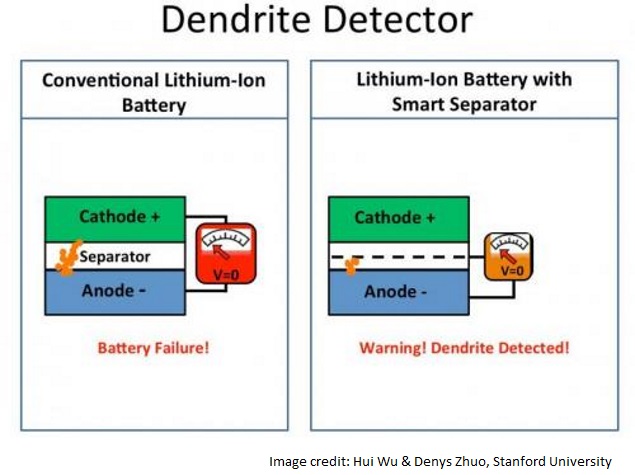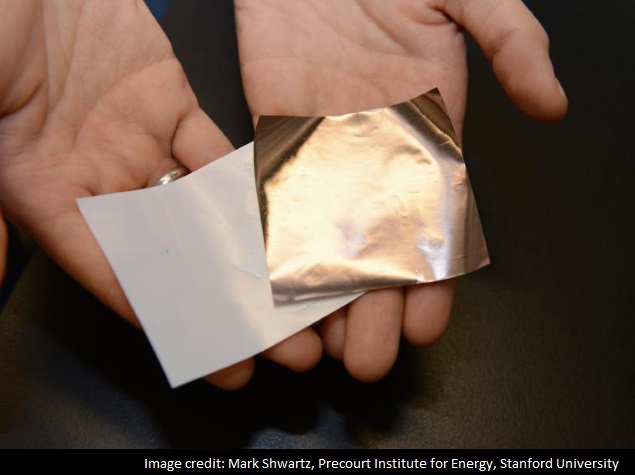US scientists have developed a 'smart' lithium-ion battery that alerts users of potential overheating and fire.
The
new technology is designed for conventional lithium-ion batteries now
used in billions of cell phones, laptops and other electronic devices as
well as a growing number of cars and airplanes.
"Our goal is to
create an early warning system that saves lives and property," said Yi
Cui, associate professor of materials science and engineering at
Stanford University.
"The system can detect problems that occur
during the normal operation of a battery but it does not apply to
batteries damaged in a collision or other accident," he informed.
A
typical lithium-ion battery consists of two tightly packed electrodes -
a carbon anode and a lithium metal-oxide cathode - with an ultra-thin
polymer separator in between.
The separator keeps the electrodes
apart. If it's damaged, the battery could short circuit and ignite the
flammable electrolyte solution, which shuttles the lithium ions back and
forth.
Cui and his colleagues applied a nanolayer of copper onto
one side of the polymer separator, creating a novel third electrode
halfway between the anode and the cathode.

"The copper layer acts
like a sensor that allows you to measure the voltage difference between
the anode and the separator," explained co-author Denys Zhuo, a graduate
student.
"Overcharging causes lithium ions to get stuck on the
anode and pile up, forming chains of lithium metal called dendrites,"
Cui added.
When the dendrites grow long enough to reach the copper coating, the voltage drops to zero.
"That
lets you know that the dendrites have grown halfway across the battery.
It is a warning that the battery should be removed before the dendrites
reach the cathode and cause a short circuit." he added.
The build
up of dendrites is most likely to occur during charging, not during the
discharge phase when the battery is being used.
"You might get a
message on your phone telling you that the voltage has dropped to zero,
so the battery needs to be replaced," Zhuo noted.
That would give
you plenty of time. But when you see smoke or a fire, you have to shut
down immediately. You might not have time to escape, the researchers
concluded.
The paper was detailed in the journal Nature Communications.
 India’s Demand for EVs, Consumer Electronics to Drive Battery Storage Adoption: NITI Aayog Report22 July 2022
India’s Demand for EVs, Consumer Electronics to Drive Battery Storage Adoption: NITI Aayog Report22 July 2022 US Seeks New Lithium Sources as Demand for Batteries Grows29 March 2022
US Seeks New Lithium Sources as Demand for Batteries Grows29 March 2022 World Faces Shortage of Lithium for Electric Vehicle Batteries21 January 2022
World Faces Shortage of Lithium for Electric Vehicle Batteries21 January 2022 Explained: How Electric Vehicles Can Be Made Better With Solid-State Batteries7 September 2021
Explained: How Electric Vehicles Can Be Made Better With Solid-State Batteries7 September 2021 Nobel Prize Winning Battery Pioneer Akira Yoshino on Tesla, Apple, and the Electric Future24 August 2021
Nobel Prize Winning Battery Pioneer Akira Yoshino on Tesla, Apple, and the Electric Future24 August 2021


![Gadgets 360 With Technical Guruji: Ask TG [ March 22, 2025]](https://c.ndtvimg.com/2024-12/5s52e4k_-ask-tg_640x480_14_December_24.jpg?downsize=180:*)












